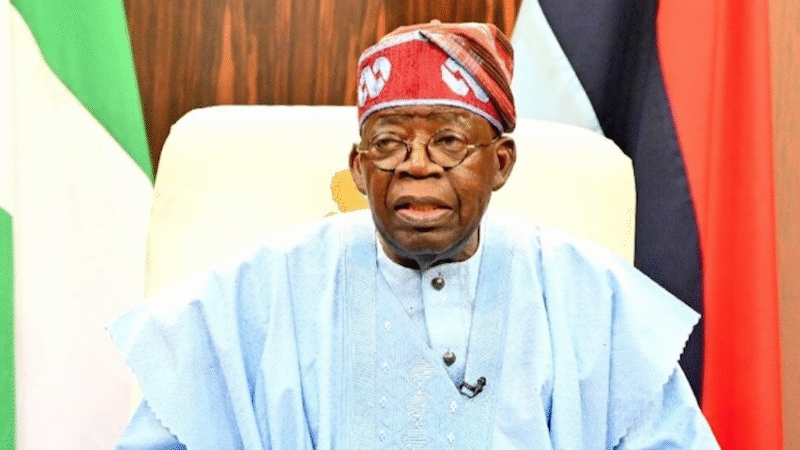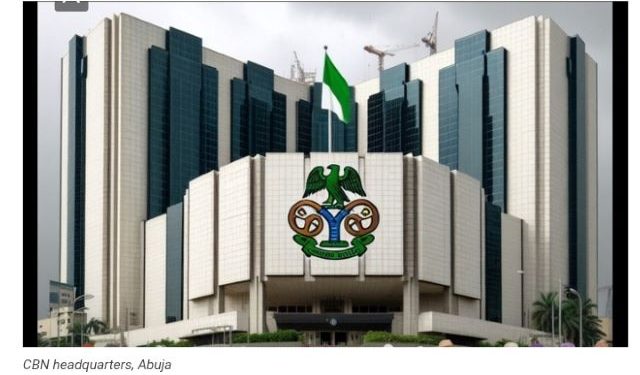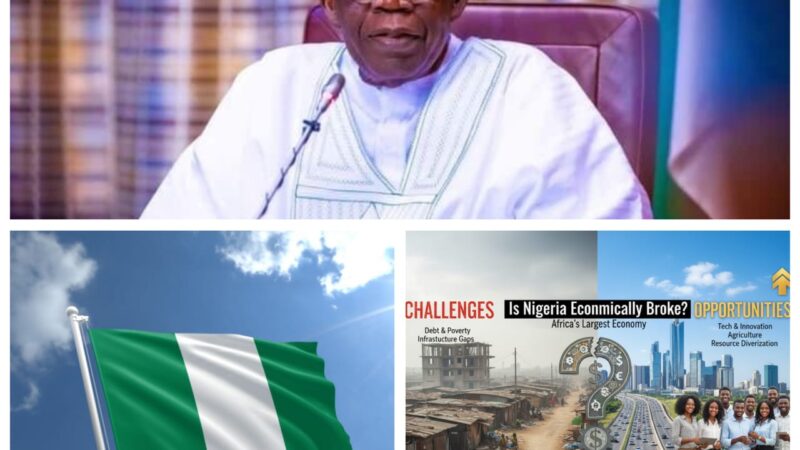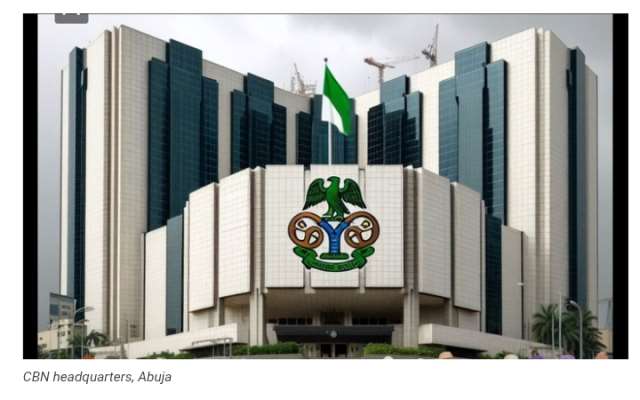IMF CONSULTATIVE REPORT

By: Dr Boniface Chizea
Reactions, as usual have followed the report by the International Monetary Fund (IMF) after its regular annual visitation to Nigeria. The IMF conducts these visitations as its obligation to member countries to assess their state of economic health which is followed up with policy advice by way of a report. This time around there has been sharp disagreement with the content of this report to the extent that the Presidency has lent its voice to this disagreement.
However, the IMF, as should be expected, gave thumbs up for the courage in implementing the reforms. This development has enhanced the attractiveness of the country to foreign investors as it has positively impacted on the inflow of portfolio investors. As a result of which the country was able to return to the International Capital Markets which encouraged reputable International Credit Rating Agencies to grant Nigeria a credit rating up-grade.
The government disagreed with the report particularly on account of its observations on the current unsustainable high level of inflation and ravaging poverty scourge. “We are being bombarded weekly with fatalistic reports, which leaves everyone confused and an overall unacceptable assessment of ongoing reforms,” claims the Presidency.
An aspect of the recommendations that grabbed the headlines is the advice that the country should expand the social safety net by extending unconditional Cash transfers to the poor to mitigate ongoing pains and suffering in the land.
I was with Channels Television Business Morning programme where I raised umbrage about this particular recommendation as I pointedly raised issues with its feasibility. We have revenue flow challenge which the Fund recognized in its report and we are talking of a large population of Nigerians who are caught in the trap of what has been described as multi-dimensional poverty. It has been expertly estimated that about 42% of Nigerians could be so categorized. We are therefore talking here of numbers more than fifty million. In the past we were able to undertake some of these cash guzzling schemes because we resorted to Ways and Means; the direct printing of currency which on the other hand resulted to the spiraling of inflationary pressures, at an unsustainable level of above 30%.
My take is that we should instead embrace pro-poor policies. It is on record that the recent tax reforms policy in Nigeria which was recently signed into law by the President takes us some good distance down that desired journey. The reforms expected to come into effect from the beginning of next year besides exempting the poor and small businesses from the payment of tax also streamlined the number of taxes citizens pay as well as reduced the tax payment threshold across the board from 30 to 25%.
One little concern one shares is the fear whether due diligence has been observed to ensure that the overall inflow from taxation is not inadvertently reduced. Our extent problem with taxation hitherto is the fact that the ratio of tax revenue to GDP at 13% remained inadequate as well as uncompetitive.
I also argued that a preferred approach would be to prioritize sectors of the economy with the potentials to impact the fortunes of the poor by the extension of adequate budgetary funding. Such sectors would include but not limited to; health, education, housing and provision of essential infrastructure such as the availability of regular and steady power supply. Such a development would go a long way in making life bearable for the down trodden population as it alleviates poverty.
There are also other problems with implementation of cash transfers to be gleaned from our recent experience. We were severely challenged with issues regarding the level of transparency. Where are the poor domiciled and what records do we have about them? In other word do we have a register for that purpose that is comprehensive and authentic. Instead, implementation was riddled with the diversion of such funds and was thoroughly politicized. The Humanitarian Ministry came off not smelling rosy on this account. Therefore, the recommendation to argument cash transfers by government is clearly a hard road to travel.
The Fund applauded Nigeria for the recent growth in the Gross Domestic Product (GDP), estimated at 3.4% by the Fund and at a lower rate of growth of 2.9% projected by National Bureau of Statistics (NBS). For the records, the growth rates were almost negative in the period from 2017 leading up to 2023. Recently, there was a not so healthy debate in this regard when Dr. Femi Adesina outgoing President of the African Development Bank asked during a paper presentation whether Nigerians’ quality of life is better now compared to what it was at Independence. I believe that the GDP does not tell the complete story in our situation due to the existence of a large informal market, which is second only to that of Italy.
And therefore, most of our production since not mainstreamed could not be captured in the official data. But the fact remains that the same argument would relatively apply to most other countries. And what is more, warts and all, GDP remains the only known available statistic for the purpose of measuring the totality of goods and services produced by a nation over the period of assessment.
Also talking of poverty alleviation, it is impactful if growth is realized from the real sectors of manufacturing, industry, agriculture, mining and construction. When such is the case, there is quantum leap in employment opportunities which directly impacts poverty levels. The experience today in Nigeria is that the GDP is grossly dependent on the services sector where Nigeria is one of the leaders in the world and the extractive sector which is an enclave economy on its own without much linkage with the rest of the economy.
The Fund recommends the long-standing advice for the urgent diversification of the economy for balanced, more reliable and resilient growth. In this respect the Fund highlights the issues of worsening security situation resulting in massive food insecurity, high and unsustainable high rates of inflation, weak currency and poor infrastructure as some of the draw backs in this regard.
The Fund concludes with up beat expectations that the coming on stream of Dangote Refinery would give considerable boost to GDP in the not distant future which foreground the need for a stable macro-economic environment necessary to boost private sector participation which really should constitute the engine room of the economy.
On budget preparation and implementation which should really serve as the blue print for running the economy, the Fund recommends a revisit to the budget structure/framework, the adoption of a culture of realistic assumptions in the preparation of budgets, transparency in expenditure management with enhanced fidelity in budget implementation. We are not in a good place today as far as budget preparation is concerned. BudgIt group, for instance, estimates that a whopping 11,000 project insertions were made by the National Assembly leading to the padding of 2025 Budget by up to N6.9 trillion. It is difficult to wrap one’s brain round these observations.
Regarding monetary policy, the Fund recommends the need to pursue macro-economic stability vigorously. An inflation rate of over 30% which was recently reported to be about 24% as a result of a rebasing of the economy is clearly unsustainable. It must be observed here that the reported reduced level of inflation as a result of rebasing does not in any way reduce the impacts of inflationary pressures on the population. Essentially, such rebasing exercises only embraces reality as it aids comparability. With an inflation rate that is double digit and Minimum Rediscount Rate at 27.5% the tale of a harsh economic environment does not need further qualifications. The Central Bank was commended for its avoidance of Ways and Means financing. But it must be clear to all and sundry that the race for the attainment of macro-economic stability had barely begun. The Central Bank was given thumbs up that official foreign exchange is now accessible to a majority of the population.
We recommend to the authorities a positive attitude in relating with the IMF as partners in progress as the Fund discharges its responsibility of the promotion of world prosperity. The Fund will have no reasons to be unjustifiably critical of policies as it has no benefits in that direction. When there are the inevitable disagreements, all parties must come to the table with positive mind set and the best of intentions.
Boniface Chizea
MD/CEO
BIC Consultancy Services, Lagos.







